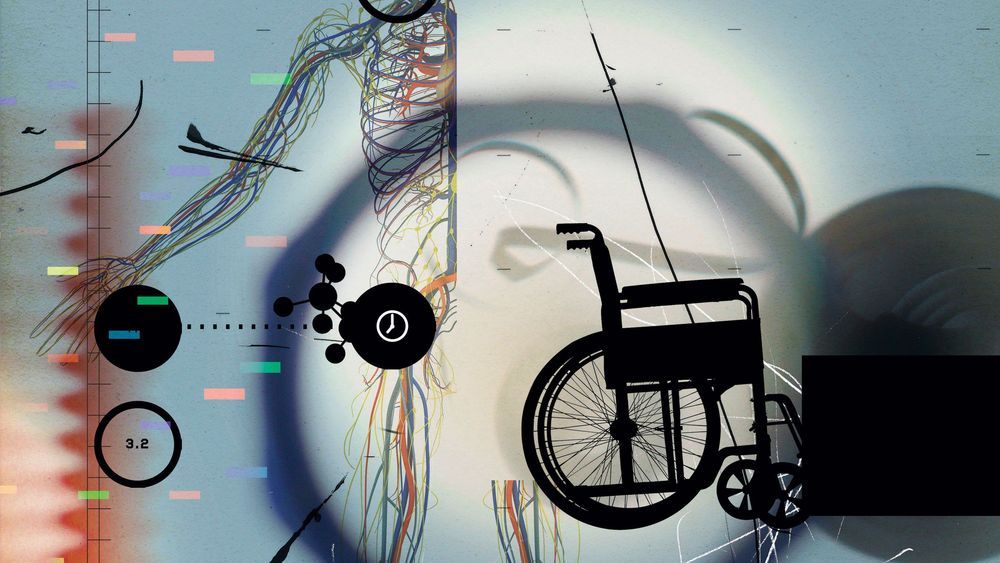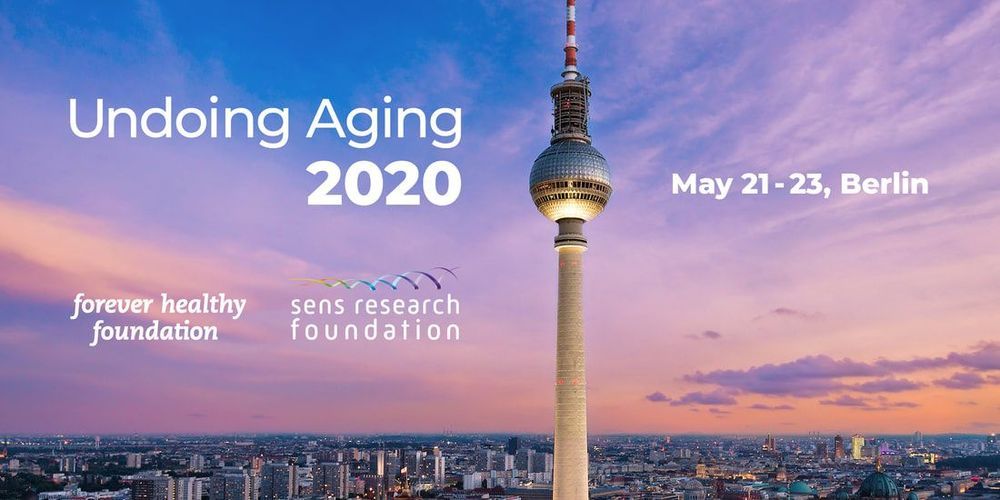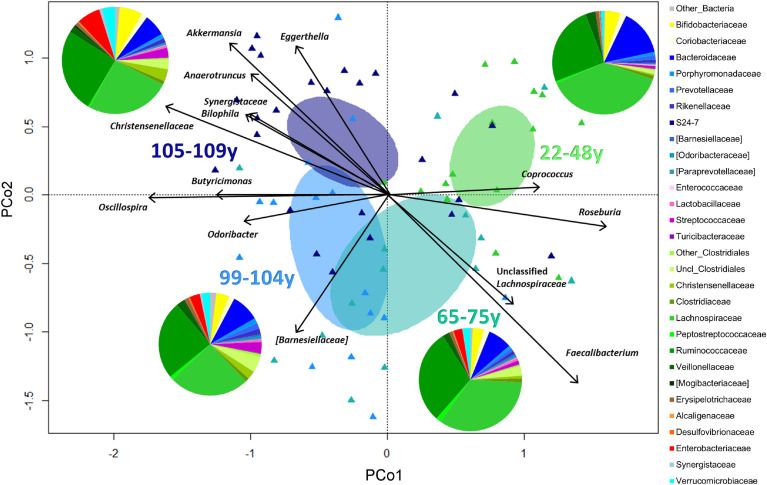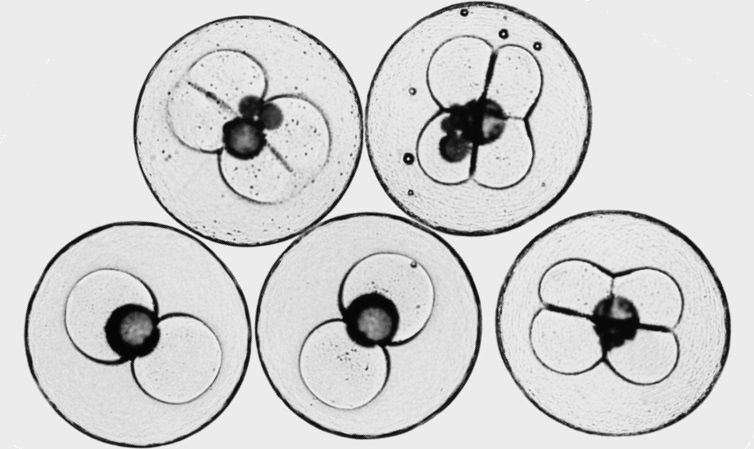Category: life extension – Page 489
Ray Kurzweil: Enhanced Longevity by 2030
People say, well, but we’re going to stop being human if we merge with machines. No, that is what it means to be human.
Dr. Kurtzweil, I would like to ask you. You have made hundreds of predictions out of which many already have come true, and with no doubt many more will come through. But if you would have to single out your three most important predictions for the upcoming decade, what would they be?
Well, one is health and medicine. We talked about our bodies and our bodies are basically actually information because it’s governed by our genes. They are information processes. We didn’t used to treat it that way. It was basically hit or miss. We’d find something. Oh, here’s something that lowers blood pressure. Here’s something that kills HIV. And we would find these things accidentally, so progress was linear. Still valuable. I gave a speech to 12 and 13 year old science winners recently and I said you all would be senior citizens if it hadn’t been for this progress because life expectancy was 19 a thousand years ago. But this is going to go into high gear now. The enabling factor for health and medicine to become an information technology was the genome project. That itself is a perfect exponential and we now have the software of life and we’re also making exponential progress in being able to model it, simulate it, understand it and reprogram it.
And I could speak at great length about examples of how we’re doing that. You can for example now fix a broken heart. Not yet from romance, that’ll take a few more developments in virtual reality, but from a heart attack. My father had a heart attack in the 60s, nothing you could do about it, he could hardly walk. But I’ve talked to people now who could hardly walk and are now rejuvenated. You actually have to be a medical tourist and go to a place like Israel. But that’s just one example of many and what is now a sort of a trickle of these developments, is going to be a flood ten years from now. These technologies will be a thousand times more powerful than they are today because they’re doubling in power every year. They’ll be a million times more powerful in 20 years.

New clues on stem cell transplant rejection revealed in study
In 2006, scientists discovered a way to “reprogram” mature cells—adult skin cells, for example—into stem cells that could, in principle, give rise to any tissue or organ in the body. Many assumed it was only a matter of time until this groundbreaking technique found its way into the clinic and ushered in a regenerative medicine revolution.
Because the same patient would be both the donor and the recipient of cells derived from these so-called induced pluripotent stem cells (iPSCs), these cells would be seen as “self” by the immune system, the thinking went, and not subject to the problems of rejection that plague conventional transplants.
But iPSCs haven’t emerged as the cure-all that was originally envisioned, due to unforeseen setbacks, including the surprising preclinical finding that iPSC-derived cell transplants are often rejected, even after being reintroduced into the organism the cells were sourced from.

What if aging weren’t inevitable, but a curable disease?
Each Cyclops had a single eye because, legend has it, the mythical giants traded the other one with the god Hades in return for the ability to see into the future. But Hades tricked them: the only vision the Cyclopes were shown was the day they would die. They carried this knowledge through their lives as a burden—the unending torture of being forewarned and yet having no ability to do anything about it.
Since ancient times, aging has been viewed as simply inevitable, unstoppable, nature’s way. “Natural causes” have long been blamed for deaths among the old, even if they died of a recognized pathological condition. The medical writer Galen argued back in the second century AD that aging is a natural process.
His view, the acceptance that one can die simply of old age, has dominated ever since. We think of aging as the accumulation of all the other conditions that get more common as we get older—cancer, dementia, physical frailty. All that tells us, though, is that we’re going to sicken and die; it doesn’t give us a way to change it. We don’t have much more control over our destiny than a Cyclops.
Ronald Kohanski at Ending Age-Related Diseases 2019
Today, we’re offering another discussion from Ending Age-Related Diseases 2019, our highly successful two-day conference that featured talks from leading researchers and investors, bringing them together to discuss the future of aging and rejuvenation biotechnology.
Today, we’re offering another talk from Ending Age-Related Diseases 2019, our highly successful two-day conference that featured talks from leading researchers and investors, bringing them together to discuss the future of aging and rejuvenation biotechnology.
Ronald Kohanski, Deputy Director of the Division of Aging Biology at the National Institute of Aging, gave a talk entitled Concepts and Perspectives in Geroscience. He discussed the ways in which aging affects systems and cells, the problems with using lifespan as an endpoint, the concept of resiliency, parabiosis, telomeres, unexpected effects at a distance with regards to interventions, and several in-depth concepts relating to the aging of specific cell types, such as muscle and brain cells.


From centenarians’ genetic code, a potential new therapy against cardiovascular diseases
Some people live much longer than average, partly thanks to their DNA. A study, published in the European Heart Journal, shows that it could be possible to replicate this genetic gift even for those lacking it. The way is now open to an innovative therapy model capable of preventing and fighting cardiovascular diseases through a real rejuvenation of blood vessels.
The study, conducted by the I.R.C.C.S. Neuromed, the I.R.C.C.S. Multimedica and the Department of Medicine, Surgery, and Dentistry, Salerno Medical School University of Salerno, with the support of the Cariplo Foundation and the Italian Ministry of Health, focuses on the gene that encodes the BPIFB4 protein. In the past, the same research group had identified a variant of this gene, the so-called LAV (“longevity associated variant”), which prevails in people over 100 years of age. Now, through a viral vector, researchers have inserted the LAV-BPIFB4 gene into the DNA of animal models particularly susceptible to atherosclerosis and, consequently, to cardiovascular diseases.
“The results—says Annibale Puca, coordinator of a research team at the University of Salerno and at I.R.C.C. MultiMedica—were extremely encouraging. We observed an improvement in the functionality of the endothelium (the inner surface of blood vessels), a reduction of atherosclerotic plaques in the arteries and a decrease in the inflammatory state.”


The transhumanists who want to live forever
For a core of longevity true believers, the time to intervene is now.
“How old are you?” James Clement wanted to know.
I turn 50 this year. There’s a new creaking in my bones; my skin doesn’t snap back the way it used to. It’s developed a dull thickness—you can’t tickle me at all. My gums are packing it in and retreating toward my jaw. These changes have been gradual or inexplicably sudden, like the day when I could no longer see the typed words that are my profession. Presbyopia, the ophthalmologist told me. Totally normal. You’re middle-aged.
To Clement, though, my age was great news. “Yep, you are going to live forever,” he said. “I think anybody under 50 who does not have a genetic liability will make it to longevity escape velocity.”

Inducing Pluripotency Through Multiple Routes
A new study outlines multiple ways in which epiblast stem cells can be reprogrammed back into a fully pluripotent state, paving the way for a better understanding of epigenetics.
The role of epigenetics
Epigenetics are why our cells, which all have the same DNA, differ in function. A bone cell has the same genetics as a nerve cell, but its epigenetic switches instruct it to perform the functions of a bone cell and not a nerve cell. Epigenetic alterations, however, are one of the primary hallmarks of aging. As we age, harmful epigenetic switches are activated and beneficial ones are deactivated, causing age-related dysfunction. This may even lead to inflammation, which causes further epigenetic damage, leading to a dangerous feedback loop.